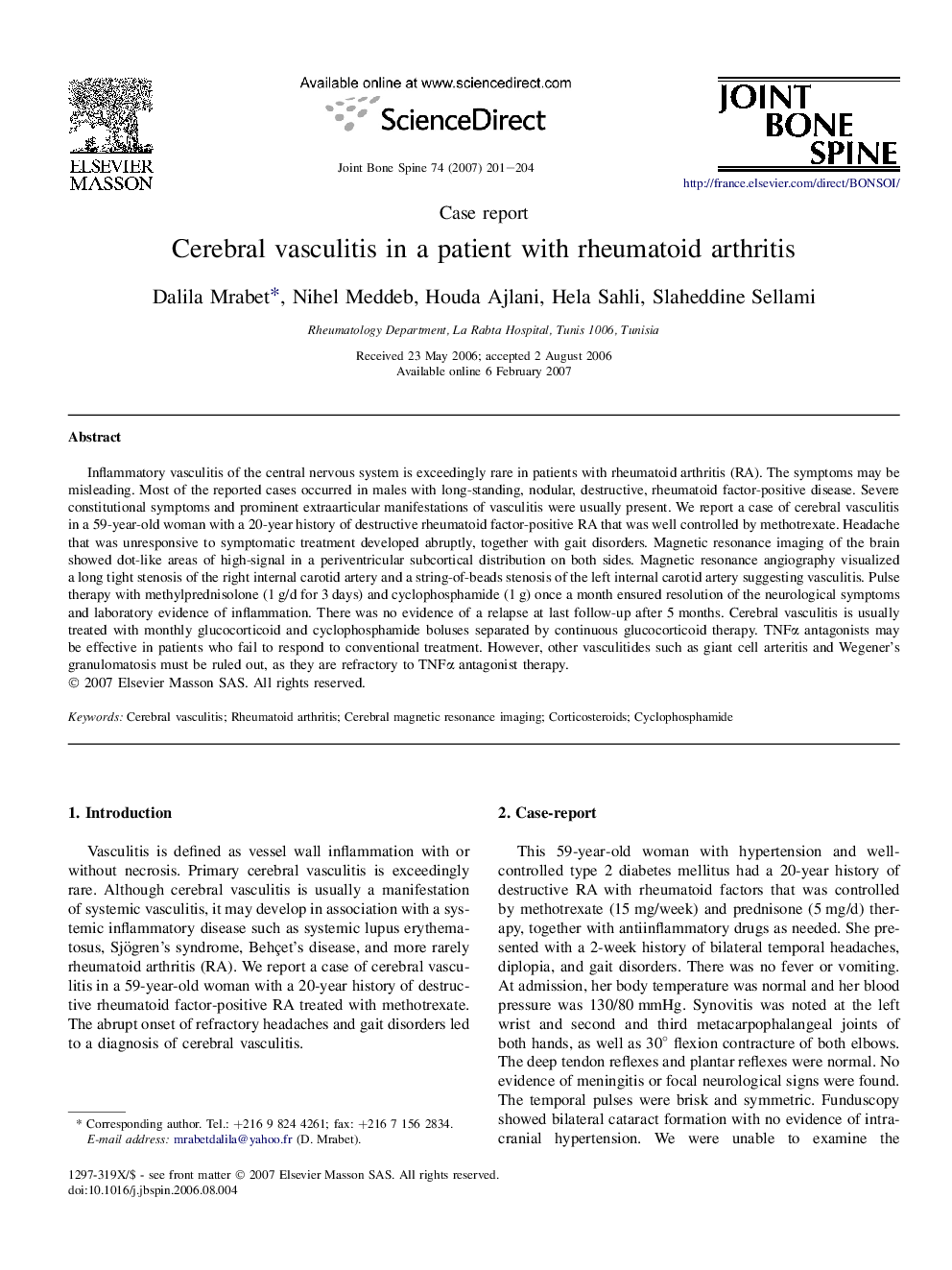| Article ID | Journal | Published Year | Pages | File Type |
|---|---|---|---|---|
| 3367562 | Joint Bone Spine | 2007 | 4 Pages |
Inflammatory vasculitis of the central nervous system is exceedingly rare in patients with rheumatoid arthritis (RA). The symptoms may be misleading. Most of the reported cases occurred in males with long-standing, nodular, destructive, rheumatoid factor-positive disease. Severe constitutional symptoms and prominent extraarticular manifestations of vasculitis were usually present. We report a case of cerebral vasculitis in a 59-year-old woman with a 20-year history of destructive rheumatoid factor-positive RA that was well controlled by methotrexate. Headache that was unresponsive to symptomatic treatment developed abruptly, together with gait disorders. Magnetic resonance imaging of the brain showed dot-like areas of high-signal in a periventricular subcortical distribution on both sides. Magnetic resonance angiography visualized a long tight stenosis of the right internal carotid artery and a string-of-beads stenosis of the left internal carotid artery suggesting vasculitis. Pulse therapy with methylprednisolone (1 g/d for 3 days) and cyclophosphamide (1 g) once a month ensured resolution of the neurological symptoms and laboratory evidence of inflammation. There was no evidence of a relapse at last follow-up after 5 months. Cerebral vasculitis is usually treated with monthly glucocorticoid and cyclophosphamide boluses separated by continuous glucocorticoid therapy. TNFα antagonists may be effective in patients who fail to respond to conventional treatment. However, other vasculitides such as giant cell arteritis and Wegener's granulomatosis must be ruled out, as they are refractory to TNFα antagonist therapy.
